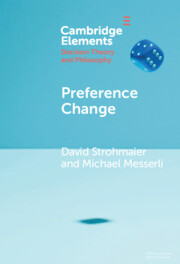Widespread evidence from psychology and neuroscience documents that previous choices unconditionally increase the later desirability of chosen objects, even if those choices were uninformative. This is problematic for economists who use choice data to estimate latent preferences, demand functions, and social welfare. The evidence on this mere choice effect, however, exhibits serious shortcomings which prevent evaluating its possible relevance for economics. In this paper, we present a novel, parsimonious experimental design to test for the economic validity of the mere choice effect addressing these shortcomings. Our design uses well-defined, monetary lotteries, all decisions are incentivized, and we effectively randomize participants’ initial choices without relying on deception. Results from a large, pre-registered online experiment find no support for the mere choice effect. Our results challenge conventional wisdom outside economics. The mere choice effect does not seem to be a concern for economics, at least in the domain of decision making under risk.



